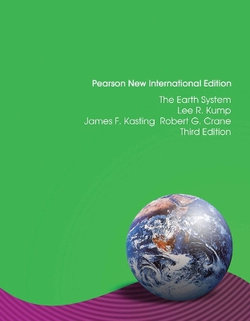The first textbook of its kind that addresses the issues of global change from a true Earth systems perspective, The Earth System offers a solid emphasis on lessons from Earth's history that may guide decision-making in the future. It is more rigorous and quantitative than traditional Earth science books, while remaining appropriate for non-science majors.
SamplesPreview sample pages from The Earth System Features
A Closer Look, Useful Concepts, and Thinking Quantitatively boxes address topical issues related to the material presented. They give students appealing visual and highlighted aids and isolates advanced, quantitative treatments for higher-level courses.
The systems theory approach looks holistically at all that happens on Earth and the interactions of all that is here - such as the effect of weather on land, the effect of erosion on the ocean, the chemical changes that occur - and emphasises that these processes do not happen in a vacuum.
An emphasis on global change addresses such modern issues as global warming, ozone depletion, and biodiversity loss.
A thorough treatment of Earth history provides a framework for developing a deep understanding of global problems while it explores analogous situations in Earth history.
Extensive pedagogy in each chapter includes thought questions, a summary of important points, a list of important terms, and recommended general and advanced readings.
New to this edition
Updates incorporate the fourth assessment report from the Intergovernmental Panel on Climate Change, interspersing new findings and data throughout the textbook where it is most fitting.
Revised Chapter 6, The Cryosphere, explains models and circulation patterns of atmosphere and ocean systems, with an increased attention on the links to the global climate system.
A new chapter on Global Warming divides this crucial content into two chapters:
Chapter 15, Global Warming, Part 1: The Scientific Evidence details the findings of the IPCC report and historical data models that reveal the enormity of what we're seeing in climate change science.
Chapter 16, Global Warming, Part 2: Impacts, Adaptation, and Mitigation explores the human element, how our behaviour is negatively affecting the climate and what changes we could make to positively address this urgent situation.




Share This Book: